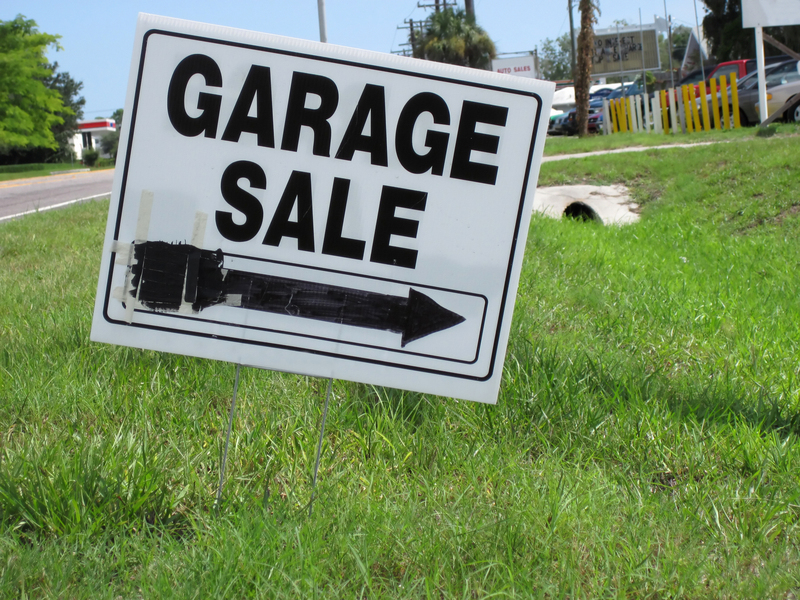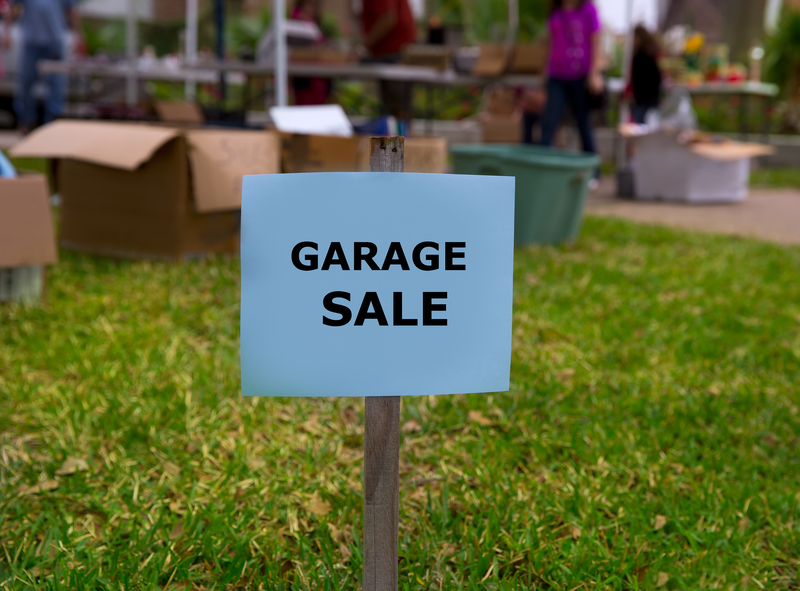Optimizing Household Efficiency by Reducing Waste
In an era where sustainability and cost-effectiveness are paramount, many families and individuals are seeking ways to optimize household efficiency. A primary strategy involves reducing waste in daily life, not only to help the environment but also to save money and streamline daily routines. This comprehensive guide delves into the various methods, benefits, and actionable steps for reducing household waste and maximizing your home's efficiency.

Understanding the Importance of Minimizing Household Waste
Every year, millions of tons of waste are generated in homes worldwide. From spoiled food and excessive packaging to energy loss and water misuse, the cumulative impact is substantial. By focusing on household waste optimization, you can make a noticeable difference in your environmental footprint, utility bills, and lifestyle comfort.
- Environmental Impact - Reducing waste helps conserve resources and decrease greenhouse gas emissions.
- Financial Savings - Less waste means fewer purchases and reduced utility costs.
- Simplified Living - An efficient home is easier to manage and maintain.
Key Areas to Reduce Waste and Enhance Efficiency
1. Food Waste Reduction
Food waste represents one of the largest contributors to household inefficiency. The average family tosses out hundreds of dollars in spoiled or uneaten food every year, not to mention the wasted resources used for production and transportation.
- Plan Meals Wisely: Create a weekly meal plan and shopping list to buy only what you need. This minimizes impulse purchases and prevents overbuying perishables.
- Utilize Leftovers: Find creative ways to use leftovers or repurpose ingredients. For example, roasted chicken can become soup or salad the next day.
- Store Food Properly: Use airtight containers, fridge organization techniques, and clear labeling to prolong freshness and reduce spoilage.
- Compost: Composting transforms organic waste into valuable garden soil, reducing landfill contribution and supporting a healthier yard.
2. Minimizing Packaging and Single-Use Items
Packaging and disposable products are significant sources of household waste. Transitioning to reusable alternatives can dramatically enhance household efficiency.
- Choose Bulk and Refillable Options: Purchase grains, cereals, and cleaning agents in bulk. Refill containers at local shops to limit plastic waste.
- Opt for Reusables: Use cloth napkins, washable cleaning pads, and glass or stainless-steel water bottles instead of paper and plastic disposables.
- Repair vs. Replace: Extend product life by repairing clothes, gadgets, and appliances rather than discarding them at the first sign of wear.
3. Energy Efficiency Optimization
Another crucial aspect of household efficiency optimization through waste reduction is lowering energy consumption. Unused or inefficient appliances, poor insulation, and careless habits can all result in wasted power.
- Upgrade to Energy-Efficient Appliances: When replacing old equipment, seek out Energy Star-rated items that use less electricity.
- Unplug When Not in Use: Many electronics draw power even when "off." Use smart power strips or unplug devices to avoid "phantom" energy drain.
- Switch to LED Lighting: LED bulbs use a fraction of the energy compared to standard incandescents and last much longer.
- Improve Home Insulation: Seal windows and doors, and consider upgrading insulation to keep energy use in check, especially during extreme temperatures.
- Embrace Smart Home Technology: Timers, thermostats, and sensors help automate and optimize resource use.
4. Water Conservation Strategies
Reducing water waste not only conserves a valuable resource but can also noticeably cut utility costs. Optimizing water usage is a key pillar of overall household efficiency.
- Fix Leaks Promptly: Address dripping faucets or running toilets to avoid hundreds of gallons of wasted water each year.
- Install Water-Efficient Fixtures: Low-flow showerheads, faucets, and toilets can cut water consumption in half or more.
- Use Appliances Efficiently: Run dishwashers and washing machines with full loads to maximize water use per cycle.
- Capture Rainwater: Use rain barrels for garden irrigation, reducing the burden on municipal water supply.
5. Streamlined Recycling Programs
Effective recycling is a cornerstone for reducing household waste. Maximizing what is diverted from landfill boosts resource reuse and keeps your home more organized.
- Learn Local Guidelines: Every municipality accepts different materials. Understand what you can and cannot recycle.
- Clean and Sort: Rinse containers and separate materials properly to prevent contamination that renders recyclables unusable.
- Find Specialty Recyclers: Seek out programs for electronic waste, batteries, and hazardous materials that can't go in curbside bins.
- Reduce Before You Recycle: Remember, reducing and reusing are superior to recycling when it comes to minimizing household inefficiencies.
Techniques for Sustainable Household Management
Adopt Minimalist Living Principles
A cluttered home can lead to lost items, duplicate purchases, and wasted resources. By embracing a minimalist approach, you can facilitate easier cleaning and maintenance while also curbing unnecessary consumption.
- Declutter Regularly: Donate or sell unused items. Organize spaces for functionality and simplicity.
- Buy Quality, Not Quantity: Invest in durable goods that last, reducing the frequency of replacements.
- Implement One-In, One-Out Rule: For each new item brought into your home, consider removing an old one to prevent clutter accumulation.
Engage the Whole Family in Waste Reduction
Household efficiency is most successful when everyone participates. Involve each family member in creating sustainable habits and evaluating your progress.
- Assign Roles: Give tasks such as recycling sorting, meal planning, or checking for leaks to different household members.
- Set Goals: Track progress towards targets like reducing trash output or lowering energy bills, and celebrate achievements together.
- Educate and Empower: Teach kids about the importance of waste reduction and let them contribute their own ideas.
Utilizing Technology for Optimizing Household Waste Reduction
The modern smart home offers an array of digital solutions to minimize waste and increase efficiency:
- Smart Meters: Monitor water and electricity use in real-time for instant feedback and actionable insights.
- Inventory Apps: Keep track of pantry and fridge contents to reduce food spoilage and grocery redundancy.
- Recycling Reminders: Many municipalities offer apps or alerts to help you know what to recycle and when collection occurs.
Practical Tips to Start Reducing Waste Today
Ready to begin your journey toward a more efficient, waste-free home? Start today with these actionable ideas:
- Conduct a Waste Audit: Review your trash and recycling bins at the end of a week to identify the biggest sources of waste.
- Set Small, Achievable Goals: Start by tackling one area, like kitchen waste or energy use, and expand from there.
- Invest in Tools: Purchase reusable bags, containers, smart plugs, and water filters to support your waste reduction efforts.
- Educate Yourself: Read books, follow sustainability blogs, and participate in community events centered around household efficiency.
- Connect Locally: Join or form neighborhood sharing programs for tools, appliances, or bulk shopping, further cutting down on unnecessary purchases.
The Benefits of Optimized Household Waste Reduction
Reducing waste in your household doesn't just boost efficiency--it comes with a host of concrete advantages:
- Lower Bills: Less energy and water usage equals smaller utility payments.
- More Organized Spaces: Fewer unwanted items mean easier cleaning and a tidier home environment.
- Positive Environmental Impact: Lower landfill contribution and carbon footprint help create a healthier planet for future generations.
- Improved Quality of Life: A streamlined, sustainable home is less stressful and more pleasant for all occupants.
Common Obstacles to Reducing Household Waste and How to Overcome Them
- Lack of Awareness: Many people don't realize how much waste they produce. Conducting a waste audit can provide insight.
- Convenience Over Sustainability: Single-use items are easy but costly and unsustainable. Prepare in advance by keeping reusables handy.
- Resistance to Change: Involve your family in the decision-making process and implement changes gradually for better adoption.
- Initial Expense: Some efficiency upgrades require upfront investment. Focus on actions with quick paybacks, like LED bulbs or low-flow adapters, before moving to larger projects.

Case Studies: Success Stories in Household Efficiency Optimization
Urban Families Embracing Composting
A city family began composting food scraps and switching to bulk shopping. Within six months, their garbage output dropped by half, and they saved over $250 on groceries by avoiding spoilage and wasted packaging.
Retirees Investing in Energy Upgrades
A retired couple invested in home insulation and smart thermostats. Their energy bills decreased by 30%, and their home felt more comfortable year-round.
Young Professionals Sharing Resources
A group of roommates started a tool-lending circle with neighbors, reducing duplicate purchases and forming a tighter community network.
Conclusion: Make Household Efficiency a Lasting Habit
The journey towards optimizing household efficiency through waste reduction is filled with meaningful rewards. It's not only about environmental stewardship and cutting costs; it's about building better living habits for you and your family. With commitment, awareness, and the right tools, anyone can drastically reduce household waste and enjoy a more efficient, enjoyable home.
Start today. Small changes add up, and over time, the benefits to your budget, comfort, and the planet will be unmistakable. Embrace efficiency, minimize waste, and create a healthier home--one day and one decision at a time.



